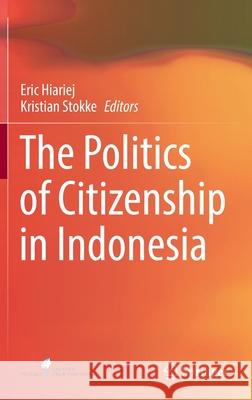The Politics of Citizenship in Indonesia » książka
topmenu
The Politics of Citizenship in Indonesia
ISBN-13: 9789811679544 / Angielski / Twarda / 2022 / 302 str.
The Politics of Citizenship in Indonesia
ISBN-13: 9789811679544 / Angielski / Twarda / 2022 / 302 str.
cena 481,91
(netto: 458,96 VAT: 5%)
Najniższa cena z 30 dni: 462,63
(netto: 458,96 VAT: 5%)
Najniższa cena z 30 dni: 462,63
Termin realizacji zamówienia:
ok. 22 dni roboczych.
ok. 22 dni roboczych.
Darmowa dostawa!
Kategorie BISAC:
Wydawca:
Springer
Język:
Angielski
ISBN-13:
9789811679544
Rok wydania:
2022
Ilość stron:
302
Waga:
0.59 kg
Wymiary:
23.39 x 15.6 x 1.75
Oprawa:
Twarda
Wolumenów:
01
Dodatkowe informacje:
Wydanie ilustrowane











